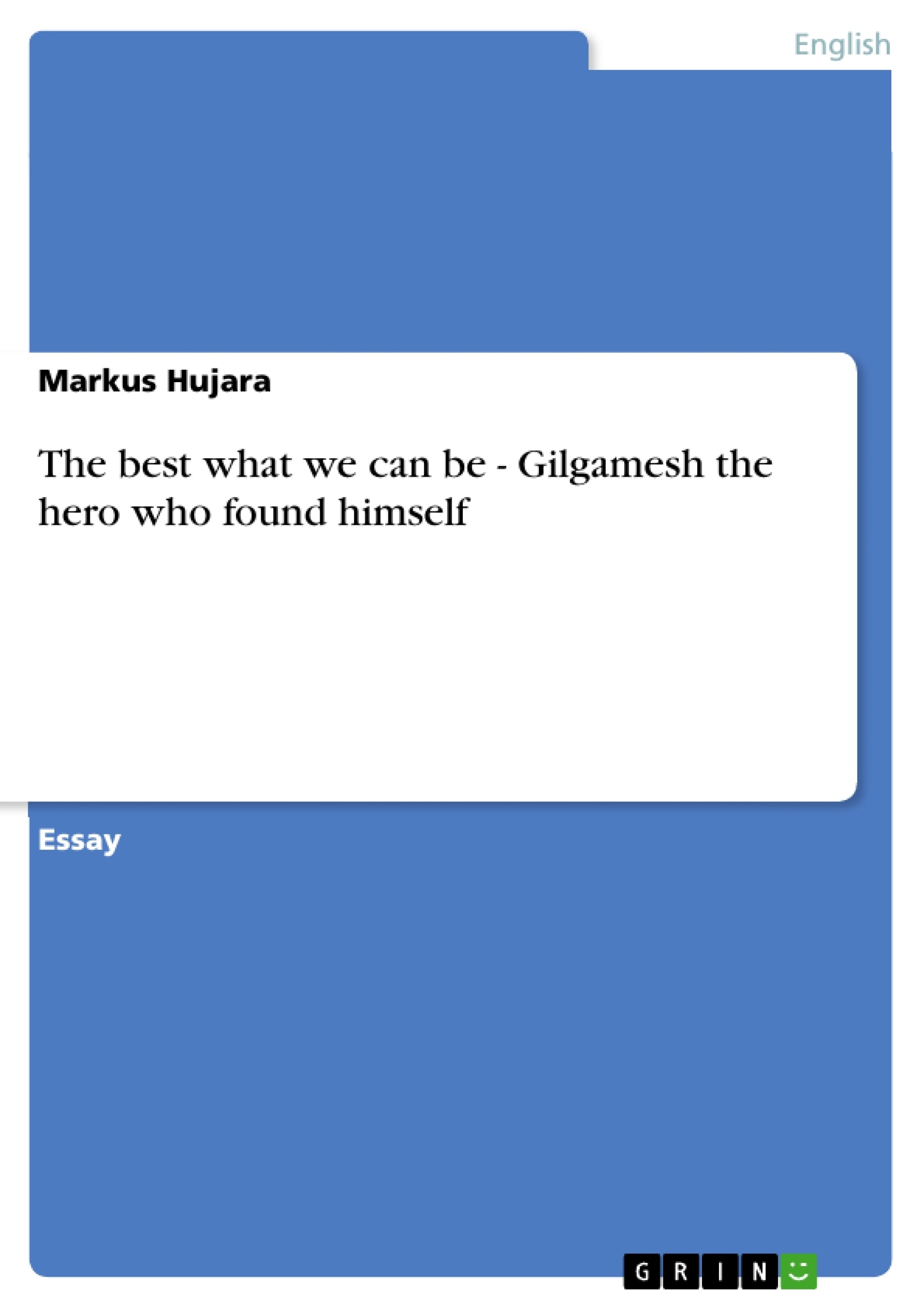Gilgamesh is dead. And the men who are aware of the past are
saying: “Who has ever ruled with might and with power like him?”
And the Gods who know the future are saying: “of mankind…none
will leave a monument for generations to come to compare with
his.”
The world has seen the ideal king. The one that had never come
before and never will return. In strong-walled Uruk he was the
strongest brick. Greatest king of all was his title. Gilgamesh his
name.
With the death of its hero the Epic of Gilgamesh finds its end. The city of Uruk cries for its king. Indeed history tells us that tears of subordinates are often commanded when the ruler passes by. But this time it seems different. When the people of Uruk pray for their dead king it is not only a duty. It is the last honest thanks and payback for “the heart of Uruk”3. What has this king done to gain this outstanding love and admiration? What happened to this guy who was first presented to us as a cruel and egoistic autocrat
Inhaltsverzeichnis (Table of Contents)
- Gilgamesh is dead. And the men who are aware of the past are saying: "Who has ever ruled with might and with power like him?"
- Why has the perception of Gilgamesh so dramatically changed?
- But not only because of losing a friend the death of Enkidu should become a turning point in the life of Gilgamesh.
- So Gilgamesh goes on this second, more spiritual journey to find everlasting life.
- As the journey was spiritual so the boon has to be more an idea than a thing.
Zielsetzung und Themenschwerpunkte (Objectives and Key Themes)
The main objective of this essay is to explore the character development of Gilgamesh as portrayed in the Epic of Gilgamesh, specifically focusing on how his journey transforms him from a cruel and egoistic ruler to a more compassionate and selfless leader.
- The Hero's Journey and its impact on Gilgamesh's transformation
- The significance of Enkidu's death in Gilgamesh's awakening to mortality
- The pursuit of immortality and the realization of the value of human life
- The contrast between Gilgamesh's initial arrogance and his later acceptance of human limitations
- The importance of embracing humanity and living a fulfilling life within its boundaries
Zusammenfassung der Kapitel (Chapter Summaries)
The essay begins by establishing Gilgamesh's initial reputation as a tyrannical ruler, highlighting his cruelty and disregard for his people. It then delves into Gilgamesh's first journey with his friend Enkidu, suggesting various interpretations of this adventure.
The essay then explores the profound impact of Enkidu's death on Gilgamesh, emphasizing how it triggers his awareness of mortality and his desire for eternal life. This leads him on a second, more spiritual journey. This journey involves interactions with gods, a search for the flower of youth, and ultimately a realization of the futility of immortality.
The essay concludes by analyzing the "boon" of Gilgamesh's journey, arguing that it is not a physical object but rather a transformation in his character. This transformation sees him embrace his humanity and find fulfillment in living a good and compassionate life, serving his people as a true king.
Schlüsselwörter (Keywords)
The main keywords and focus topics of this essay include the Epic of Gilgamesh, the Hero's Journey, mortality, immortality, character development, leadership, compassion, and the acceptance of human limitations.
Frequently Asked Questions
How does Gilgamesh's character change throughout the epic?
He transforms from a cruel and egoistic autocrat at the beginning of the story into a compassionate and selfless leader who accepts human limitations.
What is the significance of Enkidu's death?
The death of his close friend Enkidu serves as a major turning point, triggering Gilgamesh's profound fear of death and his quest for immortality.
What is Gilgamesh's "spiritual journey"?
It is his second journey where he seeks everlasting life, eventually realizing that immortality is not for humans and that the value of life lies in his legacy as a king.
What is the "boon" Gilgamesh brings back from his journey?
The boon is not a physical object, but rather a transformation in his character—the wisdom to embrace his humanity and serve his people well.
How do the people of Uruk perceive Gilgamesh at the end?
They view him with outstanding love and admiration, praying for him not out of duty, but as honest thanks for being the "heart of Uruk."
- Citation du texte
- Markus Hujara (Auteur), 2007, The best what we can be - Gilgamesh the hero who found himself, Munich, GRIN Verlag, https://www.grin.com/document/71985



